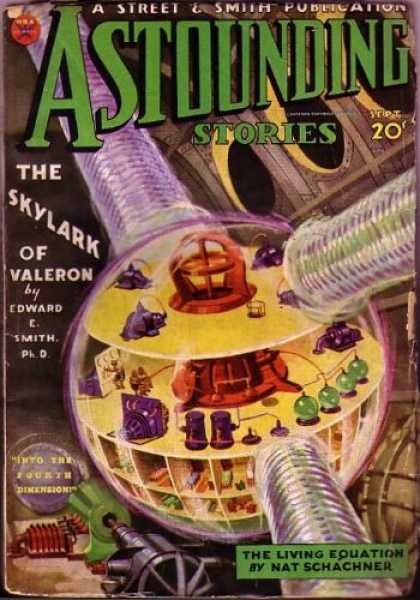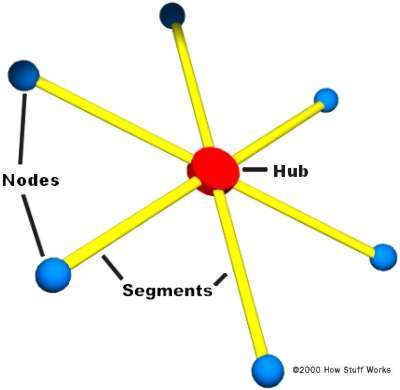| LITR 4632 Literature of the Future |
 Midterm Assignment |
 |
Relative weight:
30-40% of final grade
Format:
In-class or email; open-book and open-notebook
Date:
Thursday, 23 June, in or around regular class schedule.
![]()
Content:
2 essay questions
-
Essay 1 (1.5-2 hours): Compare, contrast, and evaluate Narratives of the
Future
-
Essay 2 (1 hour): Isolate a personal/professional topic in our course or
readings (to be extended in final exam)
Special Requirements / Instructions:
-
Both essays must have titles
-
Refer to at least one midterm answer from a previous class on course webpage's Model Assignments at some point in your exam.
-
Required textual references: You must refer to Revelation, Parable, and Time Machine + 3-4 stories somewhere in your exam.
-
You may refer briefly to future-vision presentations & outside readings but not required.
-
Texts relevant to midterm include Genesis and Revelation; Parable of the Sower; "Stone Lives"; "Bears Discover Fire"; Time Machine; "Somebody up there Likes Me"; "Garden of Forking Paths"; "Gernsback Continuum"; "Mozart in Mirrorshades"; "Better Be Ready 'bout Half Past Eight"
-
You may refer to texts in abbreviated form, e. g. Parable, “Garden,” “Gernsback.”
-
Don't copy out long quotations. Quote briefly and selectively, and analyze the language quoted.
Special Advice:
Don't hurry to email exam. When finished, take a break, then return and improve.
![]()
Timing:
Email students spend 2-4 hours writing the exam any time after our Tuesday class
(21 June) up to noon Friday, 24 June. Pauses & interruptions are okay.
-
In-class students preview to instructor; start around 9am and finish by
11:59 23 June.
Prep time:
Prepare as much as you like. Review notes and texts plus or minus outlining and
drafting. Consult notes, outlines, drafts, and the course webpage (syllabus,
objectives, model assignments) as you write.
In-class materials:
Write in blue or black ink
in a bluebook or on
handy paper. Fronts and backs, single-spacing acceptable.
Email:
email a copy of your answers to instructor at
whitec@uhcl.edu.
·
most common mistake:
students send to
“white” rather than “whitec”
·
Attach appropriate word processing file(s) to an email for
whitec@uhcl.edu.
(Microsoft Word works, Microsoft Works doesn't)
·
Copy and paste contents of your word processing file into
an email message to me at
whitec@uhcl.edu
Email acknowledgement:
Instructor usually acknowledges receipt of your midterm within a few hours
(unless you send it in at an odd time).
Email problems?
A problem or two with email is normal in a class this size. Don't panic--we'll
work things out.
Length(s):
Essay 1 probably 5-8 paragraphs; Essay 2 probably 4-7 paragraphs.
Spacing:
No need to double-space, but OK if you do. All electronic submissions are
converted to single-space for reading onscreen.
Midterm Content Outline--Two Question Topics > Essays
Essay 1
(1.5-2 hours):
Compare, contrast, and evaluate Narratives of the Future
·
Describe and evaluate the
three primary narratives for the future.
How do they differ, and how might they combine?
·
Refer to texts frequently. Move back and forth between ideas and examples.
·
How does one narrative of the future turn into another? What implications for
the future and for storytelling?
·
Not required to go through 3 narratives one at a time; also possible to organize
through "how they turn into each other"
Additional options:
(You need not cover each item individually or in order.)
·
What models of the future and human behavior or destiny follow from these
narratives?
·
What are the literary and cultural attractions or downsides of these narratives?
·
Where or how do these narratives overlap or conflict?
·
What are the pressures to choose or ignore one or the other?
·
Highlight scenes or insights in text that illuminate one or
more narratives.
![]()
Essay 2
(1 hour):
Isolate a personal / professional topic in our course or readings (to be
extended in
final exam)
Connect personal or professional reactions to course contents, 1+ course
objectives, and 2-3 texts.
("personal" = what you've
learned or thought before + personal future;
"professional" = application to student career,
teaching career, or other professional plans)
Question:
What element(s) of our course intrigue you or matter most? Why? What issue(s)
seem important and worth reading and discussing? What do you learn about your
interests?
Your emphasis may be literary, cultural/social, or both, but use examples from
texts to illustrate and develop insights.
Overlap with Essay 1 is possible. Be brief; refer instead of repeat.
Optional prompts:
What difficulties or cautions naturally attend comprehension and expression
regarding the future?
What difference do such stories make? Especially considering how long we've been
telling them? Do all of us manage alternative futures?
Connect examples from texts to contemporary-future scene.
Possibly connect your theme to
Literature of Ideas
Don't feel pressure to conform to views of instructor, who may learn more from
difference. The point of the essay is to show yourself learning.
![]()
Evaluation standards:
As in most Literature courses, quality of reading and writing distinguishes
excellent work from competent work--not just reproducing data but organizing it
into a unified, compelling essay.
Introducing and developing multiple examples from texts and relating texts to
each other
are standards for better exams.
·
"Develop" means extending analysis, connecting to other examples (compare
/ contrast), and connecting to course objectives.
Audience:
-
Share your experience in the course with future students who may read your
writing in "Model Assignments."
-
Or write so someone in our class could recognize your terms and explanations
and enjoy your personal contributions or styles.
- Keep the instructor in sight. Connect through shared terms, texts, and objectives. "Write up" in terms of organization and ambition of thought.
Returning your midterms
Receipt of your email midterm will be acknowledged by reply email within a few
hours.
Around Sunday 26 June, check for your midterm note and grade emailed from
instructor.
![]()
midterm preparation
how to prepare?--not much time!
review notes, skim texts--recall characters, events, situations, ideas relevant
to 3 future narratives
take notes from notes--jot down ideas, examples, then arrange
review previous midterm samples--won't take long to find something to work
with--models help kick-start thinking
recall examples from web highlights:
-
using terms and texts
-
expressing ideas also in your own terms and understandings
-
reproduce content of class and add to it
